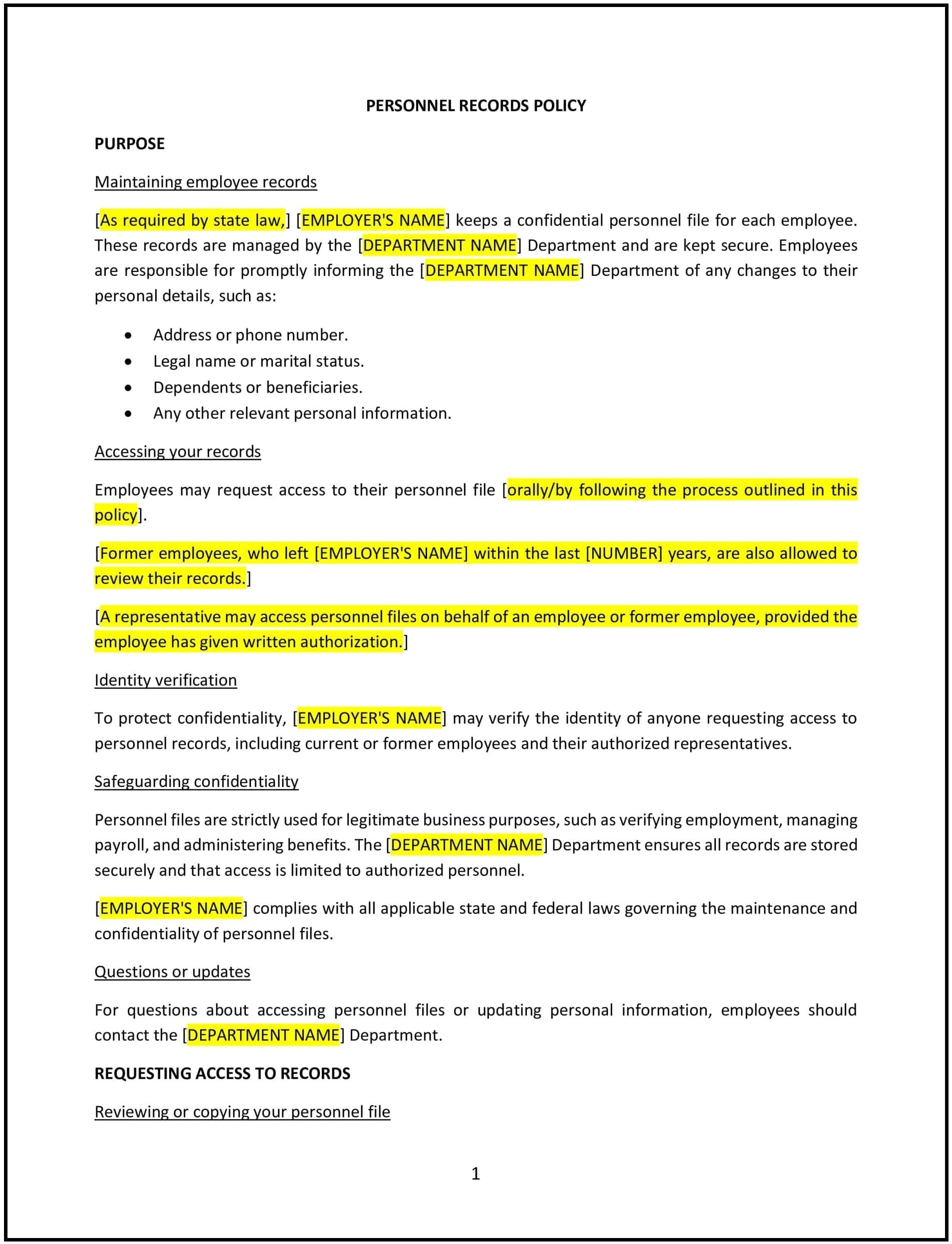Personnel records policy (North Carolina): Free template
Got contracts to review? While you're here for policies, let Cobrief make contract review effortless—start your free review now.

Customize this template for free
Personnel records policy (North Carolina)
A personnel records policy helps North Carolina businesses define how employee records are maintained, accessed, and protected. This policy outlines the types of information kept in personnel files, how long it is retained, who has access, and the procedures for correcting or updating records. It ensures that businesses manage employee information in a secure, compliant manner while respecting privacy rights.
By adopting this policy, businesses can maintain organized, accurate records that comply with North Carolina’s employment laws and protect employees' personal information.
How to use this personnel records policy (North Carolina)
- Define types of records: Specify the types of personnel records the company maintains, such as personal identification, employment history, performance evaluations, medical records, and disciplinary actions.
- Establish record retention guidelines: Define how long different types of records will be kept before being securely disposed of or archived in accordance with North Carolina's laws.
- Set access controls: Specify who within the company can access personnel records, such as HR staff, managers, or other authorized personnel, and the circumstances under which records can be accessed.
- Provide procedures for record correction: Outline how employees can request corrections to their records if any information is inaccurate or outdated.
- Reflect North Carolina-specific considerations: Ensure the policy complies with North Carolina’s laws related to employee records, privacy, and record retention.
Benefits of using this personnel records policy (North Carolina)
This policy provides several benefits for North Carolina businesses:
- Ensures legal compliance: By adhering to North Carolina’s recordkeeping and privacy laws, businesses reduce the risk of legal issues related to improper handling of employee records.
- Protects employee privacy: Clear guidelines on accessing and handling personnel records help protect sensitive employee information.
- Enhances operational efficiency: Well-maintained personnel records help streamline HR processes, such as performance evaluations, promotions, and benefits administration.
- Reduces legal risks: Proper recordkeeping and access controls help businesses defend against claims related to employment disputes or wrongful termination.
- Improves transparency: Employees can trust that their records are handled fairly and in accordance with company policies.
Tips for using this personnel records policy (North Carolina)
- Communicate the policy clearly: Ensure all employees are informed about what information is kept in their personnel records and how they can access or update it.
- Protect sensitive information: Use secure methods for storing and accessing employee records to prevent unauthorized access or data breaches.
- Regularly audit records: Periodically review the company's personnel records practices to ensure compliance with North Carolina's regulations and company standards.
- Review the policy regularly: The policy should be reviewed annually to ensure it remains compliant with North Carolina’s laws and reflects best practices.